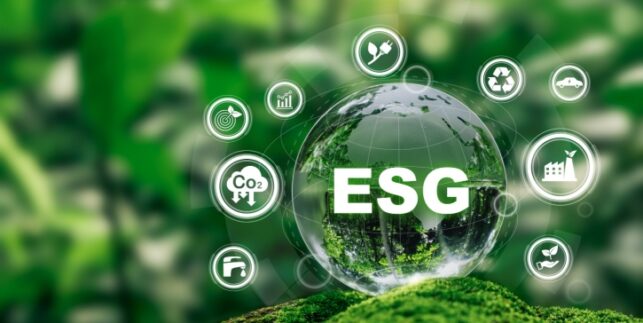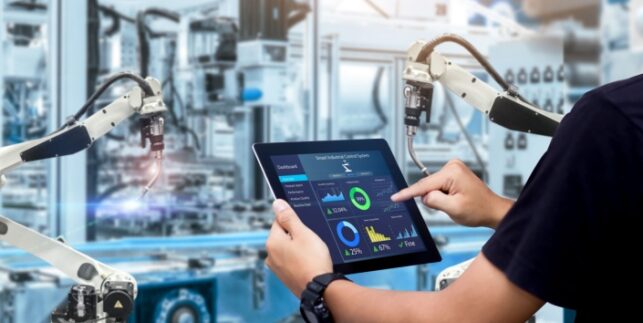Food and Beverage Manufacturing Trends to Watch in 2023 and Beyond

Manufacturing is currently at a crossroads where the increasing challenges brought on by labor shortages, supply chain difficulties, and the need for sustainability are set against new technologies and an influx of initiatives to support the industry.
The food and beverage sector is amongst the most significantly impacted by both negative and positive trends. The coming years will bring many changes throughout the industry, and here are some of the most prominent to watch for in 2023 and beyond.
Increasing Demand for Sustainable Packaging Solutions
Sustainable packaging is the most widely discussed trend in the industry today, with manufacturers around the world implementing new measures to face increasing regulation and consumer demand. Reduction in packaging, new materials, and reusable packaging are all areas that food and beverage manufacturers are currently focused on.
A survey by Deloitte on the future of food and beverage manufacturing highlighted environmentally friendly packaging as the most important area of sustainable manufacturing among manufacturers. A total of 74% of respondents said that environmentally friendly packaging was an area they’re currently working toward to prepare for the future, the highest response out of any category.
The transition to sustainable packaging throughout the industry seeks to address a variety of issues. First, the accumulation of plastics and other packaging waste in landfills and within the environment. There is also the need to reduce both natural resource and energy consumption associated with the production of packaging of any kind, even those that are biodegradable.
Redesigning packaging and using new materials presents a range of challenges for manufacturers. New packaging can introduce issues in production, during transportation, on store shelves, and for the consumer, requiring careful planning and attention to detail during this transition.
Broader Focus on Scope 3 Emissions
Reducing emissions will be one of the most pressing challenges for food and beverage manufacturers over the coming years as governments around the world introduce increasing regulation to meet ambitious net zero goals.
Within food and beverage manufacturing, there is an increasing focus on scope 3 emissions, an area traditionally overlooked in sustainable manufacturing efforts. Scope 3 emissions encompass a wider range of sources throughout the value chain as well as direct emissions by the manufacturer. The expanded scope includes upstream and downstream sources, along with end-of-life treatment.
Data from McKinsey shows that nearly 90% of emissions from food and beverage manufacturers fall under scope 3. The need for a more comprehensive value-chain approach is clear. However, many manufacturers are currently unprepared. The same McKinsey report shows that 30% of food and beverage manufacturers aren’t ready to face future requirements within their region.
In order to face this challenge, manufacturers are turning to a variety of solutions. Improved supply chain transparency and traceability are among the most important elements of a modern approach to emissions. A focus on recyclability and other end-of-life treatment improvements is also critical.
Adoption of New Industry 4.0 Technologies and Solutions
Industry 4.0 encompasses a wide range of technologies and processes that are beginning to see adoption in the food and beverage manufacturing sector. A variety of technologies promise to address many common challenges found throughout the industry.
The previously mentioned survey by Deloitte also asked food and beverage manufacturers about their thoughts on Industry 4.0 and current adoption levels. Awareness still lags behind in food and beverage manufacturing compared to other sectors, with 47% of respondents rating Industry 4.0 technology as important to align their business with future industry trends.
Within the food and beverage sector, the most prominent adoption of Industry 4.0 technology today is in biotech, with advanced solutions applied throughout agriculture. In factories, various types of robotics are seeing implementation at different levels to reduce labor requirements and improve accuracy.
Moving forward, the food and beverage sector will start to see more adoption of other Industry 4.0 technologies. IoT sensors and devices are particularly promising for their versatility and adaptability for use with existing processes. Production monitoring and analytics based on AI and machine learning are also contenders for a significant impact on food and beverage manufacturing.
Grappling With the Ongoing Labor Shortage
The ongoing labor shortage continues to be a pressing concern for food and beverage manufacturers. A survey by Deloitte and FMI asked food and beverage manufacturers about how they’re preparing their businesses for the future. The most widely selected response was talent retention, with 45% of respondents. Attracting new talent followed with 36%.
Food and beverage manufacturers are struggling to fill positions due to the ongoing labor shortage. This has resulted in rising labor costs. Data from the US Bureau of Labor Statistics shows a 6% increase in average hourly earnings across the industry between February 2022 and February 2023. This marks a significant acceleration compared to previous years, where annual increases were closer to 3%.
Manufacturers may be faced with rising labor costs in order to fill positions and maintain their operations. Many different regulations and programs have been put in place around the world to address labor shortages through increased training and education programs, standardized certification, and other methods. However, these have a long-term horizon, while manufacturers need solutions now.
Many manufacturers are turning to automation to address the growing gap between labor requirements and the available workforce. In the same Deloitte and FMI survey, 3 in 5 food and beverage manufacturers say that they are seeking out new opportunities for automation aggressively, with some hoping to automate up to 50% of current labor requirements.
Adapting to the Future of Food and Beverage Manufacturing
The trends sweeping across the industry impact each individual manufacturer differently. While some stand poised to benefit from new technologies and solutions, others struggle to tread water among modern challenges. No matter their current outlook, the right move for manufacturers is to take advantage of every opportunity that the future holds.
Matics makes it easy for manufacturers to do just that.
Our Real-time Operational Intelligence (RtOI) solution empowers manufacturers with the best of Industry 4.0 technology through real-time monitoring, powerful analytics, and work management tools. Schedule a demo of Matics RtOI today to see how we can help prepare your food and beverage manufacturing operations for the future.





